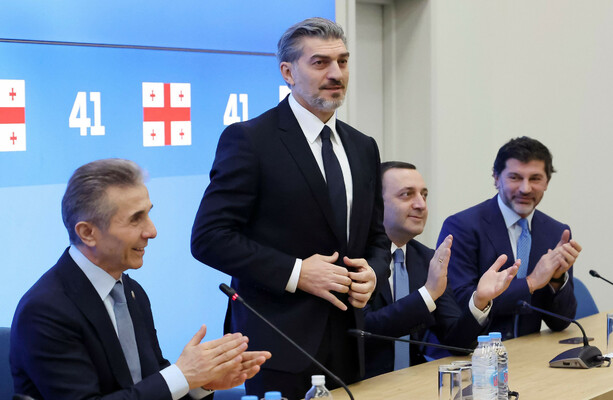Indonesian Leader gus Dur: A Legacy of Unity and a Push for National Hero Status
A significant movement is underway in Indonesia to posthumously honor Abdurrahman Wahid, the country’s fourth president, better known as Gus Dur, with the prestigious title of national hero. This push underscores his enduring legacy of promoting unity and diversity in a nation known for its rich cultural tapestry.
The proposal,spearheaded by influential figures including Coordinating Minister for Social empowerment Muhaimin Iskandar,gained momentum at a recent national gathering. Iskandar eloquently stated, ”Hence, I am confident that we should initiate the move to propose Gus Dur as a national hero. We hope our aspiration will come true for our nation.”
While Iskandar acknowledged that Wahid “does not need national hero status,” he emphasized the importance of his example for future generations. Gus Dur’s unwavering commitment to peace and justice serves as a powerful inspiration for Indonesia’s continued pursuit of these ideals.
Iskandar, also the head of the National Awakening Party (PKB), reiterated the party’s dedication to upholding Wahid’s values of unity, diversity, brotherhood, and humanity. This commitment extends to advocating for the revocation of MPR Resolution No. II/MPR/2001,which condemned Wahid and led to his removal from office in july 2001. The resolution stemmed from his controversial attempt to dissolve parliament, a move deemed unconstitutional.
MPR Deputy Speaker Rusdi Kirana, also a member of the PKB, echoed this sentiment. He stated that the party’s parliamentary faction is actively working to overturn the resolution, asserting that Wahid never violated the Indonesian constitution during his presidency. Kirana added, “Although Gus dur has been a national hero in our hearts, mine included.”
The call for Gus Dur’s recognition as a national hero is not merely a political maneuver; it reflects a deep-seated appreciation for his contributions to Indonesian society. His legacy resonates with the ongoing efforts to foster national unity and address social justice issues, mirroring similar challenges faced by nations around the world, including the United States.
The culmination of this movement saw Kirana receiving a formal recommendation letter from various public and religious figures, solidifying the push for Gus Dur’s national hero designation. This development underscores the profound impact of his leadership and the enduring relevance of his ideals in contemporary Indonesia.
A lasting Legacy: Examining the movement to Honour Gus Dur
[Interviewer]: Basuki Suryanto, welcome to world-today-news.com.You’re a leading Indonesian political historian, and given the recent surge in calls for gus Dur to be recognized as a national hero, we’re thrilled to have your insights.
Basuki Suryanto: Thank you for having me. It’s certainly an important conversation to be having.
[Interviewer]: Absolutely. For our readers who may not be familiar, could you shed some light on who Gus Dur was and why this movement is gaining so much traction?
Basuki Suryanto: Abdurrahman Wahid, affectionately known as Gus Dur, was Indonesia’s fourth president, serving from 1999 to 2001. Though his time in office was relatively short, his impact on the nation was profound. He was a champion of pluralism and religious tolerance, advocating for dialog and understanding in a country known for its vast religious and cultural diversity. Gus Dur also fiercely defended the rights of the marginalized and fought against authoritarianism.
[Interviewer]: So, this push for national hero status is a way to formally recognize his contributions?
Basuki Suryanto: Precisely. Manny feel that Gus Dur’s commitment to unity,justice,and democracy deserves to be enshrined in Indonesia’s national memory. This movement is driven by a deep respect for his legacy and a belief that his example is still relevant today.
[Interviewer]: I see. the article mentions a controversial resolution that led to his removal from office.Can you elaborate on that?
Basuki Suryanto: Yes, in 2001, Gus Dur faced immense political pressure and was ultimately removed from office by the people’s consultative assembly (MPR) following a controversial attempt to dissolve parliament. This move was seen by many as unconstitutional and driven by political maneuvering rather than genuine concerns. His supporters believe this resolution tarnished his reputation unfairly and are working to have it overturned.
[Interviewer]: It’s clear this movement is gaining momentum. What are the next steps?
Basuki Suryanto: There’s a strong push for the Indonesian government to formally recognize Gus Dur as a national hero. While the final decision lies with the president, the growing support from influential figures across political spectrums, including the PKB party which Gus Dur once led, suggests a real possibility of this becoming a reality.
[Interviewer]: Basuki Suryanto, your perspective has been invaluable. Thank you for joining us today.
Basuki Suryanto**: It was my pleasure.


